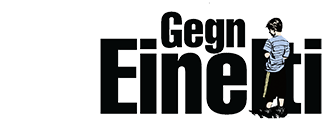This project builds on the theories and research of Professor Dan Olweus, who directs the Research Centre for Health Promotion (Hemil Centre) in Bergen, Norway. In its main aspects, the “Olweus Programme” is constructed according to a few key rules confirmed by studies. Bullying is violence; it should not be looked on as a “disagreement” between a doer and a sufferer. Generally, the antagonists are socially strong, but their behaviour is anti-social and they have a more positive view on violence than most students.
Iceland – good practice II
Olweus wants to reshape the social environment which nourishes victimisation and to create school surroundings (and if possible surroundings at home too) characterised by warm, positive interest and kindness on the part of adults. Unacceptable behaviour and the breaking of set rules, on the other hand, should be met by punishment that is unwavering and negative, though neither physical nor denigrating. Olweus desires to modify the environment so as to reduce the possibilities for harassing behaviour and its reinforcement.
Name and full contact details of key person
Þorlákur H. Helgason fræðslustjóri í Árborg, Ráðhúsinu á Selfossi, Austurvegi 2, 800 Selfossi.
Ártún 13
IS-800 Selfoss, Iceland
E-mail:thorlakur@khi.is
Aims
The goal of the Programme is that the entire school community be activated in order to guarantee a school environment where students feel comfortable and enjoy security. A good spirit in each class is the key to a positive school atmosphere. Violence and anti-social behaviour, including bullying, is combated systematically through the coordinated endeavour of all personnel and pupils, along with the close cooperation of homes.
Objectives
The plan involves continued education for all employees in 43 Icelandic compulsory schools. The study materials are analysed in detail, methods learned of working towards a democratic atmosphere and against anti-social behaviour, and cases of harassment discussed so that a coordinated approach becomes established.
Target groups
The groups targeted are the personnel of the 43 schools participating in the project, i.e. over 2,000 employees including the school administrators, teachers and other staff; 13,000 students (which is 30% of Iceland’s compulsory school pupils) and their parents; in addition to various other parties working with children and youth in their free time, such as in sports and youth activities.
Key activities/procedures
The project leaders at twenty mother schools and institutions in Iceland participate in a course organised by the “Olweus group” in Bergen, learning to apply Olweus’s methods in efforts against victimisation and towards positive, democratic schools. Discussion groups are formed at each school joining in the project, both mother schools and cooperating schools. These groups are meeting regularly for 18 months in the academic years of 2002-2004 to go over the materials systematically and talk about measures. To this purpose they have a manual, video cassettes etc. Two instructors lead each group, supported and strengthened at every school by the project leaders at mother schools.
A broad survey is presented to the students at the beginning of the Programme and again a year later, with the second survey measuring the success of the first year.
Financial support
The Ministry of Education, Science and Culture; associations of teachers and headmasters; and individual participating local authorities assume the costs.
The project is supervised by the key person (ÞHH) given above, in conjunction with a work team of representatives from the bodies sponsoring the project.I In addition to those mentioned above, the NGO Home and School – National Parents’ Association is party to the project.
Perceived strengths
A comprehensive system, this Programme addresses all aspects of schoolwork; all those involved in contending with bullying speak with one voice, coordinating their actions. Schools which have systematically applied Olweus methods have succeeded in significantly reducing victimisation. Moreover, studies have demonstrated a substantial decrease in other anti-social behaviour such as theft, vandalism, drinking and truancy, while it is also confirmed that students feel better at school and that the social environment (atmosphere) has changed considerably for the better.
Perceived weaknesses
Having no reservations, this Programme demands a great deal of discipline. There are some important waypoints in the Olweus Programme which may not be ignored, and this could initially conflict with school procedures – including some other respects than the fight against victimisation.
Future prospects
When the Programme is formally concluded as the school year 2003-2004 closes – at the end of May 2004 – the schools will for the most part sustain themselves and will continue to utilise the Olweus Programme in schoolwork. Then the project leaders will have become full-fledged instructors in Olweus know-how.
Other schools will probably be invited to join in at first opportunity; in fact, many headmasters have declared their interest, and not every school could be included in the initial undertaking.

